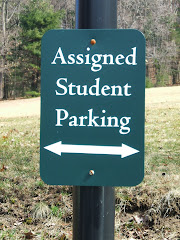 In 1926 American merchants listed downtown traffic congestion as their most serious difficulty. Unenforced curbside parking and lack of off-street parking facilities were listed as the primary problems. Customers went where they could park.
In 1926 American merchants listed downtown traffic congestion as their most serious difficulty. Unenforced curbside parking and lack of off-street parking facilities were listed as the primary problems. Customers went where they could park. During the great depression city revenues dwindled. With parking meters, however, a new source of municipal revenue was found. Not only did the nickels paid in by parkers accumulate, but so did the fines imposed for over parking. By 1944, American cities were generating some $10 million annually from parking meters alone. Soon after came meter maids, who were paid less than police officers, to increase city revenues.[citation needed] Complex parking rules, restrictions and regulations are now an integral part of modern life and landscape.
Typically a ticket is placed on a vehicle when the owner or driver is not present. There is no place for a signature, and in California the registered owner cannot be charged with a misdemeanor or other criminal offense for ignoring a ticket. A letter will usually be sent prior to any punitive action. Most jurisdictions, however, will have sanctions such as refusal to allow renewal of license plates if the owner of the vehicle has unpaid parking tickets. In some jurisdictions, such as New York City, a vehicle may be towed if it has overdue parking fines exceeding a specified balance. In many jurisdictions, such as Boston, vehicles with numerous outstanding parking citations are subject to booting.



















